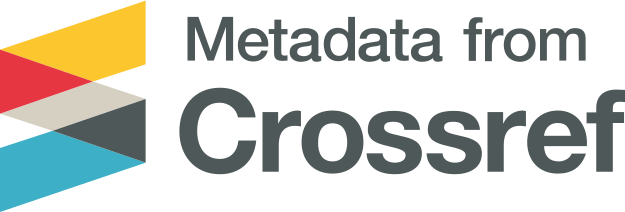Studi Kualitatif Mengenai Pengetahuan Perpajakan dan Kepatuhan Wajib Pajak Pengusaha Jastip Online
DOI:
https://doi.org/10.35838/jrap.2022.009.01.11Keywords:
Non-compliance behavior, self-assessment system, online entrusted services, online business, theory of reasoned action, income taxesAbstract
ABSTRACT
The purpose of this research is to understand how online personal shoppers' self-employed perceptions about taxes and their compliance in paying taxes. This research uses a qualitative method with an interpretative paradigm to explain and understand the phenomenon of the social world from the personal shopper's point of view. The subject used in this research are online personal shoppers located in Surabaya, women, 22-27 years old, and have annual sales under 4.8 billion. The result shows that none of the research subjects comply with paying taxes because of many different reasons such as lack of taxation knowledge; the unwillingness to pay since it reduces the income; the assumption that online business is not using country's facilities; and friends with the same job also not paying tax. Those justifications create the excuse for not paying taxes.
ABSTRAK
Penelitian ini bertujuan untuk mengetahui persepsi para pengusaha jasa titip online (jastip) tentang pajak dan ketaatan mereka dalam membayar pajak dari penghasilan usaha tersebut. Penelitian ini dilakukan dengan metode kualitatif dengan paradigma interpretatif agar dapat menjelaskan fenomena dunia sosial dari kacamata para pebisnis jastip online. Dalam penelitian ini ada lima orang subjek penelitian yang merupakan pengusaha online di bidang jastip di Surabaya, wanita, berusia 22-27 tahun, dengan penghasilan kotor (omset) di bawah 4,8 miliar pertahun. Hasil penelitian ini menunjukkan bahwa tidak ada satupun dari subjek penelitian membayar pajak penghasilan atas usaha jastip tersebut. Masing masing dari mereka mempunya alasan antara lain, pengetahuan terhadap pajak yang masih minim; perasaan keberatan dalam membayar pajak karena akan mengurangi penghasilan; asumsi bahwa bentuk usaha online yang tidak menggunakan fasilitas negara, sehingga tidak perlu bayar pajak; dan karena banyak teman satu profesi yang juga tidak membayar pakak. Hal tersebut menambah motivasi mereka untuk tidak membayar pajak dan menimbulkan perasaan aman karena tidak sendiri.
Downloads
References
Apollo. (2005). Kepatuhan Melaksanakan Kewajiban Perpajakan sebagai Bagian dari Good Governance.
Burhani, R., & Febrianto, V. (2014). Apindo: transaksi online mayoritas tidak bayar pajak - ANTARA News. Antara. https://www.antaranews.com/berita/421157/apindo-transaksi-online-mayoritas-tidak-bayar-pajak
Daymon, C., & Holloway, I. (2011). Qualitative Research Methods in Public Relations and Marketing Communications. London Routledge.
Fishbein, M., Ajzen, I., Ajzen, I., & Flanders, N. A. (1975). Belief, Attitude, Intention, and Behavior: An Introduction to Theory and Research. https://doi.org/10.51202/9783185760051-164
Kamleitner, B., Korunka, C., & Kirchler, E. (2012). Tax compliance of small business owners: A review. International Journal of Entrepreneurial Behaviour and Research, 18(3), 330–351. https://doi.org/10.1108/13552551211227710
kemenkeu.go.id. (2020). RAPBN 2020.
Kemp, S. (2020). Digital 2020: Global Digital Overview. In Https://Wearesocial.Com/Blog/2020/01/Digital-2020-3-8-Billion-People-Use-Social-Media.
Laudon, K. C., & Traver, C. G. (2017). E-commerce 2016: Business, Technology, Society, 12th Edition (12th ed.). Pearson.
Lestari, M. T., & Wahyuni, I. I. (2016). The Phenomenon of Personal Shopper among Women in Urban Cities of Indonesia (Bandung and Jakarta).
Mareti, E. D., & Dwimulyani, S. (2019). Pengaruh Pemahaman Peraturan Perpajakan, Kualitas Pelayanan Fiskus, Sanksi Pajak dan Tax Amnesty Terhadap Kepatuhan Wajib Pajak Dengan Preferensi Resiko Sebagai Variabel Moderasi. Prosiding Seminar Nasional Pakar Ke 2, 1–16. https://www.trijurnal.lemlit.trisakti.ac.id/pakar/article/view/4334/3451
Keputusan Menteri Keuangan Republik Indonesia Nomor 544/KMK.04/2000, Pub. L. No. 544 (2000).
Peraturan Menteri Keuangan Nomor 210/PMK.010/2018 tentang Peraturan Perpajakan atas Transaksi Perdagangan melalui Sistem Elektronik (e-commerce), Pub. L. No. 210 (2018).
Peraturan Pemerintah Pengganti Undang-Undang Republik Indonesia Nomor 1 Tahun 2020, Pub. L. No. 1 (2020).
Saad, N. (2012). Tax Non-Compliance Behaviour: Taxpayers View. Procedia - Social and Behavioral Sciences, 65(December 2012), 344–351. https://doi.org/10.1016/j.sbspro.2012.11.132
Sea, C., & Asia, S. (2018). Deck e-Conomy SEA 2018 by Google Temasek.
Tokopedia.com. (n.d.). Tentang Tokopedia: Ketahui Lebih Banyak Tentang Kami. https://www.tokopedia.com/about/
Turban, E., King, D., Lee, J. K., Liang, T.-P., & Turban, D. C. (2015). Electronic Commerce: A Managerial and Social Networks Perspective, 8th Edition (8th ed.). Springer.
Undang-Undang Republik Indonesia Nomor 28 Tahun 2007, Pub. L. No. 28 (2007).
Utomo, E. M. (2013). Transaksi E-Commerce sebagai Penerimaan Pajak di Indonesia. Journal Akuntansi AKUNESA, 2(1), 1–20. https://jurnalmahasiswa.unesa.ac.id/index.php/jurnal-akuntansi/article/view/6516/3417
Viana, E. R., Margareth, P., & Serly, -. (2018). Menelisik Pajak Penghasilan Atas Bisnis Online Shop. InFestasi, 13(2), 367. https://doi.org/10.21107/infestasi.v13i2.3515
Downloads
Published
Issue
Section
License
Authors who publish with this journal agree to the following terms:
- Authors retain copyright and grant the journal right of first publication with the work simultaneously licensed under a Creative Commons Attribution-ShareAlike 4.0 International License that allows others to share the work with an acknowledgement of the works authorship and initial publication in this journal.
- Authors are able to enter into separate, additional contractual arrangements for the non-exclusive distribution of the journals published version of the work (e.g., post it to an institutional repository or publish it in a book), with an acknowledgement of its initial publication in this journal.
- Authors are permitted and encouraged to post their work online (e.g., in institutional repositories or on their website) prior to and during the submission process, as it can lead to productive exchanges, as well as earlier and greater citation of published work (See The Effect of Open Access).














